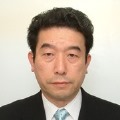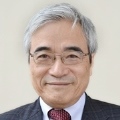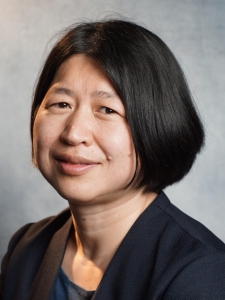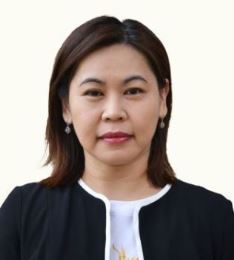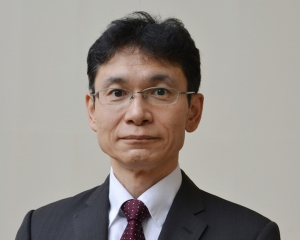MESSAGES FROM OUR PROGRAM DIRECTORS TO APPLICANTS
Graduate School of International Relations (GSIR) / Graduate School of International Management (GSIM)
[Japan-Global Development Program (JGDP)]
Students can select, adapt, refine and apply what they learn from Japan’s experience for their respective countries and professions. They also can select focused areas of academic work from a wide variety of choices based on their academic background or future careers, including “Foreign Policy,” ”Economic Policy,” “Development Policy,” “Public Management” and “Management.” Along with systematic courses on various Japanese developments, they will study core courses in each concentration area and will receive a master’s degree associated to their concentration.
Graduate School of International Relations (GSIR)
[International Relations Program (IRP)]
The IRP provides both basic and more advanced knowledge and skills to understand and analyze international affairs through teachings of faculty members from four different countries. You can learn the above knowledge and skills in a cozy but highly internationally diverse campus, so that you can consolidate such knowledge and skills not just in classes but also by practicing in everyday life at a level smaller than that of the state. We help you launch a new chapter whereby you will develop the capacity to think critically for yourself, a capacity that is crucial for the rest of your life wherever you go after graduation.
[International Development Program (IDP)]
The program provides both vigorous training in economic theory as well as applied economics. First year students take the standard course structure of: Micro, Macro, Math, and Econometrics. The program features a very diverse set of electives. In addition to coursework, students benefit from academic supervision during their thesis writing.
IDP students should have knowledge of mathematics. We strongly encourage students to review their coursework in mathematics.
[Public Management and Policy Analysis Program (PMPP)]
PMPP is a global graduate program for future leaders in the public sector and ranked at No.10 in Asia by the Eduniversal Best Master Ranking 2021.
We have three distinctive features. First, it puts emphasis on evidence-based approaches toward public organization management, policy making, and policy implementation. Our courses are designed to develop students’ capacity for handling a variety of data and identifying relevant evidence. Second, PMPP enables students to take interdisciplinary approaches for public management and policy. Lastly, our greatest strength lies in the unique and diverse community: the majority of our students are public officials from all over the world.
[International Public Policy Program (IPPP)]
The International Public Policy Program (IPPP) is a one-year mid-career program. Introduced through close consultation between IUJ and the Japan International Cooperation Agency (JICA), it’s a program designed for diplomats and government officials of countries in Asia, the Pacific and around the world. It will help professionals working in the public sector develop their core competencies to successfully plan, design, manage and monitor public policies. Students will choose either “International Affairs” or “Public Policy” concentrations depending on their professional background and career plans, and choose various discipline-based and/or issue-oriented courses.
It’s a compact, one-year program, at the end of which you can earn the Master of Public Policy degree. In summer, toward the end of their intensive one-year academic life at IUJ, students will participate in capstone courses. They are courses organized in collaboration with experts from around the globe, and students will be able to discuss various global issues such as the changing global political and economic landscapes.
Graduate School of International Management (GSIM)
[MBA Program]
GSIM’s flagship MBA program stands out, earning recognition from esteemed institutions like The Economist’s “Top 100 Business Schools” and AACSB International Social Impacts. Our curriculum strategically centers on ‘Leveraging Emerging Markets for Global Advantage,’ cultivating essential knowledge, skills, and mindset for success in the world’s fastest-growing economies. In the dynamic business landscape, we actively develop and widely disseminate the latest rigorous ideas.
Moreover, IUJ boasts substantial connections with prominent Japanese and international corporations. Our students seize numerous opportunities to engage with the global business community, gaining firsthand insights into real-world dynamics. We actively encourage students to share their interests, fostering collaborative teamwork, activating leadership, entrepreneurial behaviors, and a commitment to excellence. Join IUJ for a transformative experience that seamlessly integrates academic excellence with real-world application.
[Intensive MBA Program (IMBA)]
The 12-month MBA program is a compact program that aims to build up the business professional’s core competencies in successfully managing business strategies, human resource and developing business opportunities. The case method of teaching ensures that students not only learn the theory but also how to apply them in real business situations.
Alongside these core competencies, our IMBA students interact with a diverse and international student cohort that builds up soft skills such as communication, leadership and teamwork.
Upon graduation, our IMBA students are equipped with the knowledge and skillset to meet the challenges in today’s business environment. In addition, our IMBA students also cultivate a strong network of contacts that span over 50 countries.
The changing business landscape towards digitalization and sustainable business practices requires the business professional to be cognizant of these issues and to be able to deal with these trending challenges. The IUJ IMBA provides you an opportunity to recognize and gain confidence in your core capabilities, consolidate your business skills, learn new knowledge, broaden your perspective and widen your network.
[Digital Transformation Program (DXP)]
The DXP at IUJ is blessed with the MBA program’s international curriculum and GLOCOM’s expertise in digital technologies in Japan. The program covers the latest worldwide research and practical applications in balance.
DX is not another IT investment nor a kaizen of existing business. DX is about a business strategy to improve an organization’s competitive position in a new digital world. It is essential to solving many business problems and surviving in volatile environments.
Despite this urgency, I feel that the role of DX is not fully recognized among senior managers in practice.
At DXP, we send messages on the implications of digital technologies and spread the proper way of conducting DX projects. The program helps organizations to take advantage of new digital technologies by helping them to bring up essential talents within the organization. IUJ’s residential campus and interactive learning atmosphere are the perfect environments to focus on intensive learning.
[International Social Entrepreneurship Program (ISEP)]
*JICA Scholars only
The International Social Entrepreneurship Program (ISEP) is designed to provide students with opportunities for real-world experience in the field while completing coursework toward a Master’s degree in Social Entrepreneurship. For this reason, we assign a minimum of four months of field study. By communicating with relevant people in the field and examining solutions to social issues faced by people, students can start preparing for their future social business while still in school. Nowadays, solving social issues with the mechanism of private enterprises has been getting more and more important. ISEP’s unique structure is designed for those who are willing to enhance their abilities in both management and international relations and be a part of the evolution of society.
ISEP students study business administration as future social entrepreneurs. At the same time, they can take nearly half of the courses from the Graduate School of International Relations, allowing them to gain a deeper understanding of different fields of specialization and different regions in the world, enabling them to view social issues from a different perspective. How students balance courses in Business Administration and International Relations depends on their individual interests.

